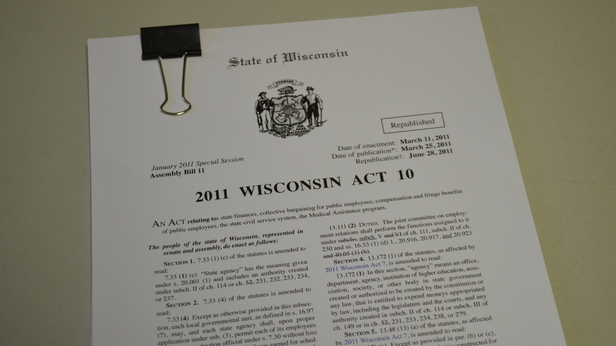
“Our political system should not be pro-public education, pro-private education, pro-charters or any other one-dimensional system. It should be pro-good education, whatever it looks like.”
MacIver News Service | November 3, 2014
[Montgomery, Ala…] Former Cunningham Elementary School Principal Dr. Goldy Brown III praised what he called “a lot of positive outcomes” from Act 10 and said expanded school choice would improve education for all students, in a recent column for Alabama Media Group.Brown left the Beloit school he was principal at earlier this year to take a position as assistant professor of instructional leadership at Auburn University of Montgomery in Alabama. His recent column claims the southern state “needs to seriously consider piloting a solid voucher program, more initiatives to legalize charter schools and to non-educational privatize services, and launch other projects to eliminate bureaucratic regulations.”
To back up his opinion, Brown highlights the successes of Wisconsin’s collective bargaining reforms and expansion of school choice – both of which were policies that came under scrutiny during his time as a principal in a Wisconsin public school.
“Last year I was a principal in an urban school district in Wisconsin, following Gov. Scott Walker’s enactment of what was called Act 10. This program ended bargaining rights for government employees, including public educators. In addition, to balancing the state budget, Gov. Walker cut per-pupil expenditures for children who attended public schools; he also extended voucher and school-choice programs. I directly heard the complaints and resentment from the government employees who stormed the capital in Madison, Wis., in protest, making national news.
“However, after Walker beat the recall election, and the reality had sunk in that things were going to change financially for public schools, I noticed a lot of positive outcomes stemming from these changes in the district I worked in. First, every child mattered now more than ever. We could not financially afford to lose children to districts that were performing better. To retain current students and attract new ones, we implemented new initiatives. The district also began to seek ways to save money. The district privatized its custodial services, resulting in both savings and cleaner schools.”
Brown also wrote about the importance of competition in education, mentioning a personal story about his experience with choice in education.
“With the new voucher system, a young local pastor of a church I frequently attended was given the opportunity to send his children to the school that he wanted, and to get the Christian education that he felt they should have. The point I am making is that, in my experience, even though lack of funding brings about challenges, competition makes things better. When parents have a choice on where to send their children to school, the schools and their leaders are forced to make themselves better.”
Read Brown’s full column by clicking here.